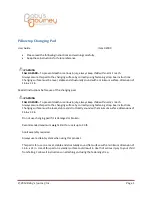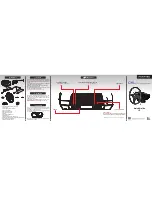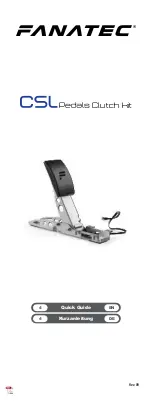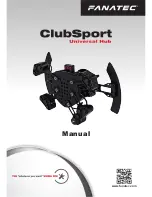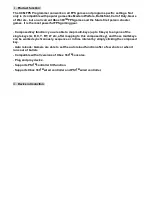
ENG
ENG-8
The “Single Action Shield System PATENTED” is the shield replacement system
developed by KABUTO. The system allows quick shield replacement for riding and
racing conditions and easy maintenance.
6
Single Action Shield System
PAT.P.
WARNING
●Operating the shutter while riding is very dangerous. Never operate the
shutter while riding. Operate it before riding.
●The air-ducts (air intakes and discharge holes) of the head ventilations and the
T
op Aero-
V
entilation are designed in the proper sizes and quantities
considered a large impact in the event of accidents and falling down.
Customizing by enlarging or making more air-ducts would reduce the safety
performances significantly and can cause serious injuries in case of an
accident. Never customize your helmet.
CAUTION
●The shield is so constructed that it cannot
be removed unless it is moved up to the
highest position.
●Do not pull or twist the shield by force to
remove it. Such action may damage the
shield and ratchet system.
●Handle the removed shield with care in
order not to damage it.
Repairing the ventilations
When each ventilation is damaged, contact your local authorized dealer (See
Pages 23 to 25).
Please be informed that we may not accept repairing, in the case the safety
performance of the helmet will be degraded.
How to remove the shield:
Move the shield up(Fig. 1). (Move it up as far as it
goes.)
As shown in Fig. 2, pull the shield in the direction of
the arrow while pressing down the release button on
the shield. One side of the shield is completely
removed.
*
The shield can be removed easily by pulling it along
the angle of the end of release button.
Repeat the same procedure for removing the other
side of the shield. Then the entire shield can be
completely removed.
Shield
Release button
Move the shield up as far as it goes.
Release button
①
Pressing down the button
①
Pressing down the button
Release button end
Fig. 1
Fig. 2
8
Pull the shield in the
direction of the arrow
Pull the shield in the
direction of the arrow
Pull it along the
angle of the end of
button
Single Action Shield System
PATENTED
The “Single Action Shield System PATENTED” is the shield replacement system deve-
loped by KABUTO. The system allows quick shield replacement for riding and racing
conditions and easy maintenance.
Move the shield up (Fig. 1).
(Move it up as far as it goes.)
As shown in Fig. 2, pull the shield in the direction of the
arrow while pressing down the release button on the
shield. One side of the shield is completely removed.
The shield can be removed easily by pulling it along the
angle of the end of release button.
Repeat the same procedure for removing the other side
of the shield. Then the entire shield can be completely
removed.
● The shield is so constructed that it cannot be
removed unless it is moved up to the highest
position.
● Do not pull or twist the shield by force to remove
it. Such action may damage the shield and
ratchet system.
● Handle the removed shield with care in order not
to damage it.
● Operating the shutter while riding is very dangerous. Never operate the
shutter while riding. Operate it before riding.
● The air-ducts (air intakes and discharge holes) of the head ventilations and the
T
op Aero-
V
entilation are designed in the proper sizes and quantities
considered a large impact in the event of accidents and falling down.
C
ustomizing by enlarging or making more air-ducts would reduce the safety
case of an
accident. Never customize your helmet
.
When each ventilation is damaged, contact your local authorized dealer
(See Pages 23 to 25).
Please be informed that we may not accept repairing, in the case the safety
performance of the helmet will be degraded
.
Shield
Fig. 1
Fig. 2
Release Button
Move the shield up as far as it goes.
How to remove the shield:
Pull the shield in the
direction of the arrow Release Button
Release button end
Pull it along the
angle of
button end
Pressing down the button
a
b
c
Summary of Contents for Japan FF-5V
Page 27: ......



























